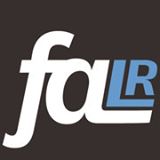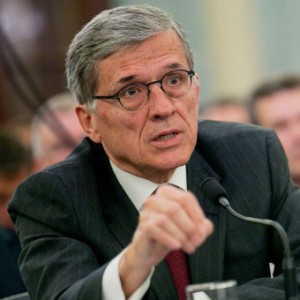 It’s never too early – or too late – to start looking for the internship, fellowship, or job that is right for you. However, the process of sifting through hundreds of postings looking for what you want can be daunting. That is why the UNC Center for Media Law and Policy created its Job Center. It’s a centralized place to find opportunities to work in the field of media law and policy.
It’s never too early – or too late – to start looking for the internship, fellowship, or job that is right for you. However, the process of sifting through hundreds of postings looking for what you want can be daunting. That is why the UNC Center for Media Law and Policy created its Job Center. It’s a centralized place to find opportunities to work in the field of media law and policy.
We Bring Our Network to You
The UNC Center for Media Law and Policy has a large (and growing) network of media law and policy minded folks who are often looking for people just like you. Here is just one example: The multidisciplinary project Privacy Tools For Sharing Research Data at Harvard is looking for undergraduates, law students, graduate students, postdocs, and visiting scholars to join its efforts to help enable the collection, analysis, and sharing of sensitive data while providing robust privacy protections. If you are willing to live in Boston for the summer (and who wouldn’t?), this could be a great summer gig.
Easy to Use
You can easily find the perfect job for you by using our advanced search feature to search by location, keyword, or practice area. Also, try browsing by job type or category for a more expansive look at what we have to offer. Just like that, opportunities for internships, fellowships, and academic teaching positions (Academic – Journalism and Academic – Law) are at your fingertips.
Wide Variety of Jobs
The job opportunities in our database are endless. If it pertains to media law, we have it. Our categories include: IP, Copyright, Photo Journalism, Broadcast, FTC listings, Cyber Law, and Trademark. It’s a one-stop shop for media law jobs. Here is a list of some of my favorite recent postings:
- Internship – NPR, Office of the General Counsel: A 10-week program that provides legal interns with an opportunity to work on diverse assignments and a wide range of legal issues, including First Amendment and intellectual property.
- The ITS Global Policy Fellowship Program: A 4-week program in Brazil that provides fellows from around the world who are interested in internet and technology policy with an opportunity to deepen their knowledge about the Brazilian technology industry.
- Free Press Public Interest Summer Associate: A 10-12-week program that provides summer associates with an opportunity to work on projects that focus on Net Neutrality, media ownership rules, antitrust law, the use of spectrum, wireless consumer protections and cable television policy.
The Time is Now
If you are currently a student, there are still opportunities for you to find the perfect summer position after on campus interviews are over. Recent graduates and experienced job seekers, employers’ needs are ever changing, so it pays to be persistent with your job search. Remember our Job Center is available year-round. Use it, along with other UNC Center for Media Law and Policy resources, to land your dream job.
- Join the UNC Center for Media Law and Policy group on LinkedIn!
- Read about UNC dual degree student Natasha Duarte’s summer internship experience at the Electronic Privacy Information Center here.
- Read about UNC dual degree student Kevin Delaney’s summer internship experience at the Reporters Committee for Freedom of the Press here.
Chanda Marlowe is a 2L at the University of North Carolina School of Law


 The back-and-forth over regulation of wireless phones continues this week. New FCC Chairman Tom Wheeler
The back-and-forth over regulation of wireless phones continues this week. New FCC Chairman Tom Wheeler